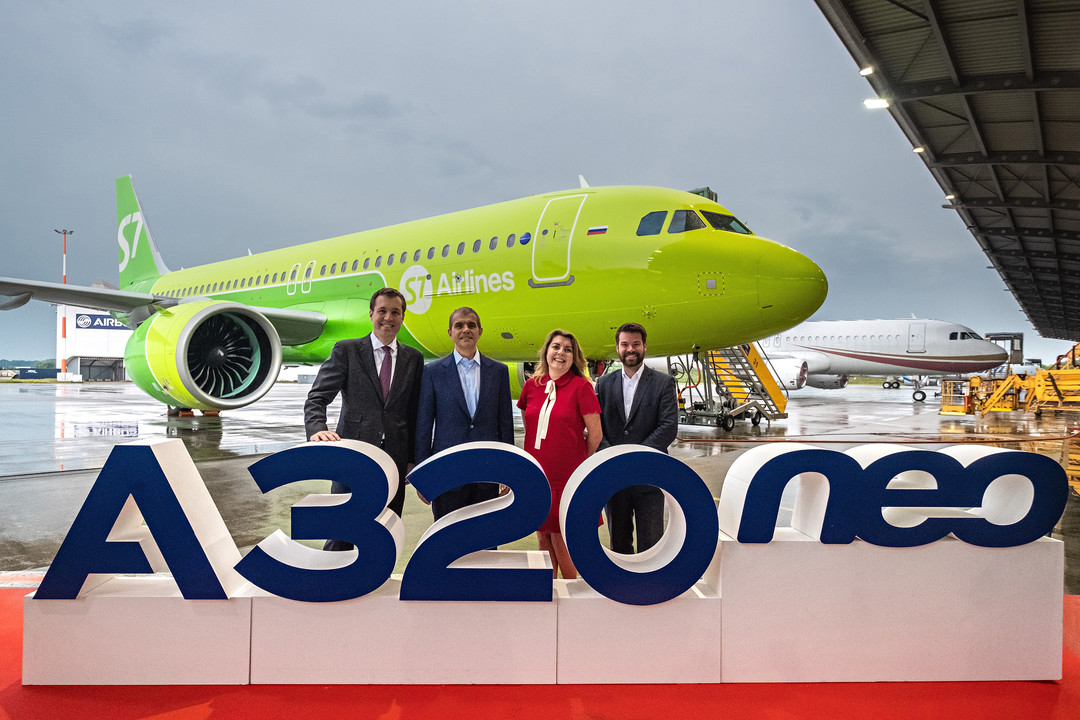Access selected deals available with budget and full-service airlines
Lock any airfare that sounds great. You don’t lose anything if you cancel it
Call us anytime for any assistance. We do not go into hibernation
Your personal and financial information stays secure with us
S7 Airlines, legally known as JSC Siberia Airlines, is Russia’s largest private airline and one of the country’s leading carriers, renowned for its modern fleet, extensive domestic network, and innovative services. Headquartered in Ob, Novosibirsk Oblast, with offices in Moscow, S7 operates primary hubs at Moscow Domodedovo International Airport (DME) and Novosibirsk Tolmachevo Airport (OVB). Below is a comprehensive overview of S7 Airlines’ history, operations, fleet, services, challenges, and future outlook.

S7 Airlines traces its origins to 1957 as the Tolmachevo United Squadron, a division of the Soviet Union’s General Directorate of Civil Aviation, based at Tolmachevo Airport in Novosibirsk. Following the Soviet Union’s dissolution, the squadron was restructured into Siberia Airlines, a state-run entity, in May 1992. Privatized in 1994, it gained an IATA airline code and began international operations. The airline rebranded as S7 Airlines in 2005, adopting a vibrant lime-green livery to reflect modernization and growth. The name “S7” symbolizes upward movement, with the “S” and “7” design mimicking a plane’s ascent.
Key milestones include the acquisition of its first non-Soviet aircraft, Airbus A310s, in 2004, phasing out Soviet-era planes like the Ilyushin Il-86 by 2008. In 2005, S7 became the first Russian airline to launch online ticket sales, revolutionizing accessibility. The airline joined the Oneworld alliance in November 2010, expanding its global reach through codeshares with carriers like Qatar Airways, Japan Airlines, and Malaysia Airlines. In 2007, S7 passed the IATA Operational Safety Audit (IOSA), becoming the second Russian carrier to achieve this global safety standard.
In 2007, S7 established Globus, a charter division for tourist destinations, which merged back into S7 by December 2019. The airline ventured into space with S7 Group’s 2016 acquisition of the Sea Launch platform, aiming for 70 launches over 15 years, though this remains a separate venture. In 2019, S7 faced tragedy when co-owner Natalia Fileva died in a private plane crash in Germany. That year, S7 introduced a hybrid-retro livery on an Airbus A320, blending its 1992–2005 and 2017 designs to honor its heritage.
The 2022 Russian invasion of Ukraine led to significant disruptions, including an EU airspace ban, suspension of all international flights by March 5, 2022, and Oneworld membership suspension in April 2022. Despite these challenges, S7 remains Russia’s top private airline, carrying 15.9 million passengers annually as of 2023.
As of 2025, S7 Airlines operates a fleet of approximately 100 aircraft, including Airbus A319s, A320s, A320neos, A321s, A321neos, Boeing 737-800s, and 737 MAX 8s. The airline phased out older Boeing 767-300ERs and A310s by 2012, focusing on modern, fuel-efficient models. In 2022, S7 returned two leased Boeing 737 MAX aircraft and faced repossession demands from lessors like AerCap and Air Lease Corporation for 13 Airbus aircraft due to unpaid leases amid sanctions.
S7 operates 134 routes across 10 countries, serving 181 cities, with major hubs in Moscow (DME), Novosibirsk (OVB), and Irkutsk (IKT). Domestic routes dominate, including Sochi–Moscow, St. Petersburg–Moscow, and Irkutsk–Moscow, with Antalya–Moscow as the top international route (27 daily flights). The airline has a strong presence in Central Asia (e.g., Almaty, Bishkek, Tashkent), China, and seasonal tourist destinations like Thailand, Vietnam, and the Maldives. Codeshare agreements with non-Oneworld carriers like Aegean Airlines, El Al, and Etihad Airways enhance connectivity.
S7’s operations emphasize efficiency, using secondary airports and a high load factor to keep fares low. However, sanctions have caused spare parts shortages, particularly for Pratt & Whitney engines on Airbus A320s/A320neos, grounding up to 20 aircraft and leading to flight cancellations in 2025.